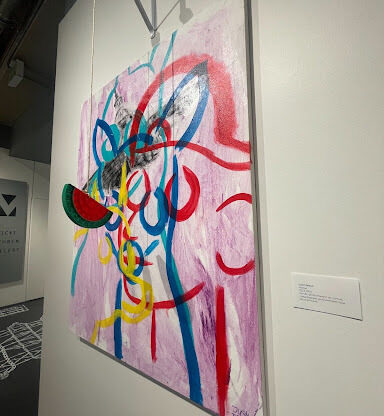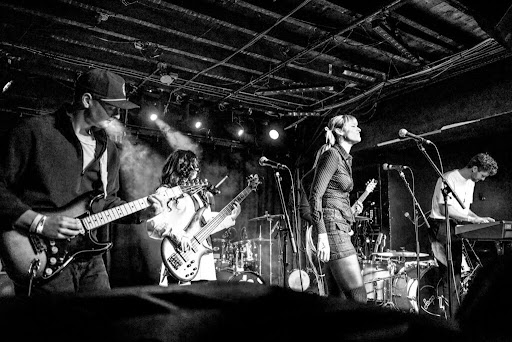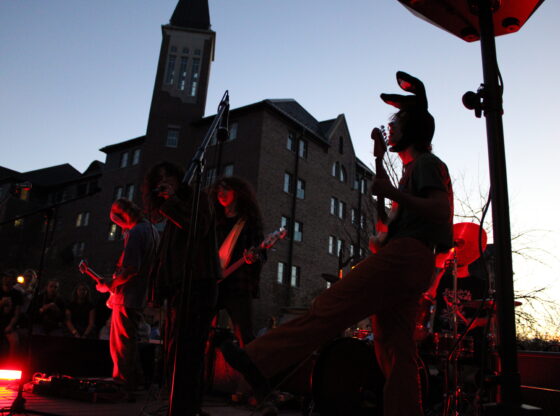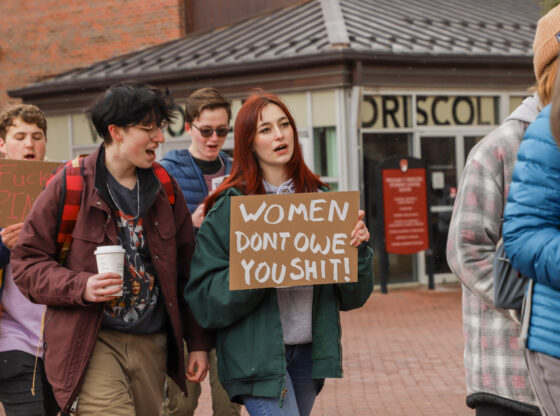The documentary “The Boy from Medellín,” directed by Matthew Heineman and released on Prime Video last week, follows Colombian reggaeton singer J Balvin in the week leading up to his first solo stadium concert in Medellín, Colombia. The documentary discusses J Balvin’s mental health issues and the reality of being an influential figure during times of social and political unrest.
The film begins by covering some of Balvin’s largest successes. He has made history as the most nominated artist at the 2018 Latin Grammys as well as the first reggaeton artist to perform on Saturday Night Live. However, his artistic beginning was turbulent. When he was 17, he moved to Los Angeles in the hopes of kickstarting his career as a performer. Struggling with anxiety, depression and the realities of being an immigrant in the U.S., he returned to Colombia feeling defeated. Despite this, the artist continued performing regularly in his hometown, Medellín, gaining local popularity before sky-rocketing to international fame.
In the film, Balvin discusses his struggles with the mental separation of his artistic persona, J Balvin, from his true identity, José Balvín. He talks about how he does not view himself as accomplished artist J Balvin but only as José. This mental separation contributes to his depression and anxiety, and it eventually led to an illness that resulted in hospitalization. After his recovery, he began to speak publicly about his mental health struggles in an effort to cope with them.
In November of 2019, a few weeks before Balvin’s first solo stadium concert, protests began in Colombia over various human-rights issues and the government of President Iván Duque Márquez. The film includes clips from these protests and emphasizes their effect on the artist. Facing pressure from his fans to speak on the protests, he struggled with remaining true to his identity as an artist while fulfilling his duties as a public figure. He was heavily criticized for his silence regarding the protests, which caused his mental and physical health to suffer. During the film, he speaks with a psychiatrist about his anxiety toward performing in Medellín in the midst of social unrest.
The documentary illustrates how Balvin’s love for his country outweighed his hesitancy to issue a statement about the protests. Taking to the internet, he posted his regrets about the death of a protester. Criticized for his late response, he continued to struggle with the best way to support the residents of Colombia.
There are many tender moments in the documentary between Balvin, his girlfriend, family and team. These moments show how important relationships are to him as support systems. They bring a lighthearted aspect to the otherwise heavy film.
The documentary ends with footage from Balvin’s first solo stadium show in his hometown, Medellín. During the performance, he spoke about the injustices committed by President Duque and asked the crowd for a minute of silence to honor the protesters. A passionate performer, he goes out of his way to connect with his audience and leaves them yearning for more.
“The Boy from Medellín” introduces fans to a different side of J Balvin. Close-up shots and one-on-one interviews foster an intimate feel, while the clips of his performances introduce a stark dichotomy between the famous J Balvin and unknown José Balvín. By discussing mental health and societal pressure, he is stripped of the cool attitude and flashy style he adopts as a reggaeton performer.
The documentary helps to destigmatize mental illness by showing Balvin openly discussing his depression and anxiety. It also reveals his many coping techniques, such as meditation and speaking with a psychiatrist, making it clear that Balvin’s struggle with mental illness is ongoing.
Largely unaware of J Balvin before watching this documentary, I was pleasantly surprised with how he was portrayed and was left wanting to know more. Promoting a sense of connection between the audience of the film and the artist, this documentary does its job of promoting his music and satisfying fans. This film is worth a watch to anyone who is interested in reggaeton.











